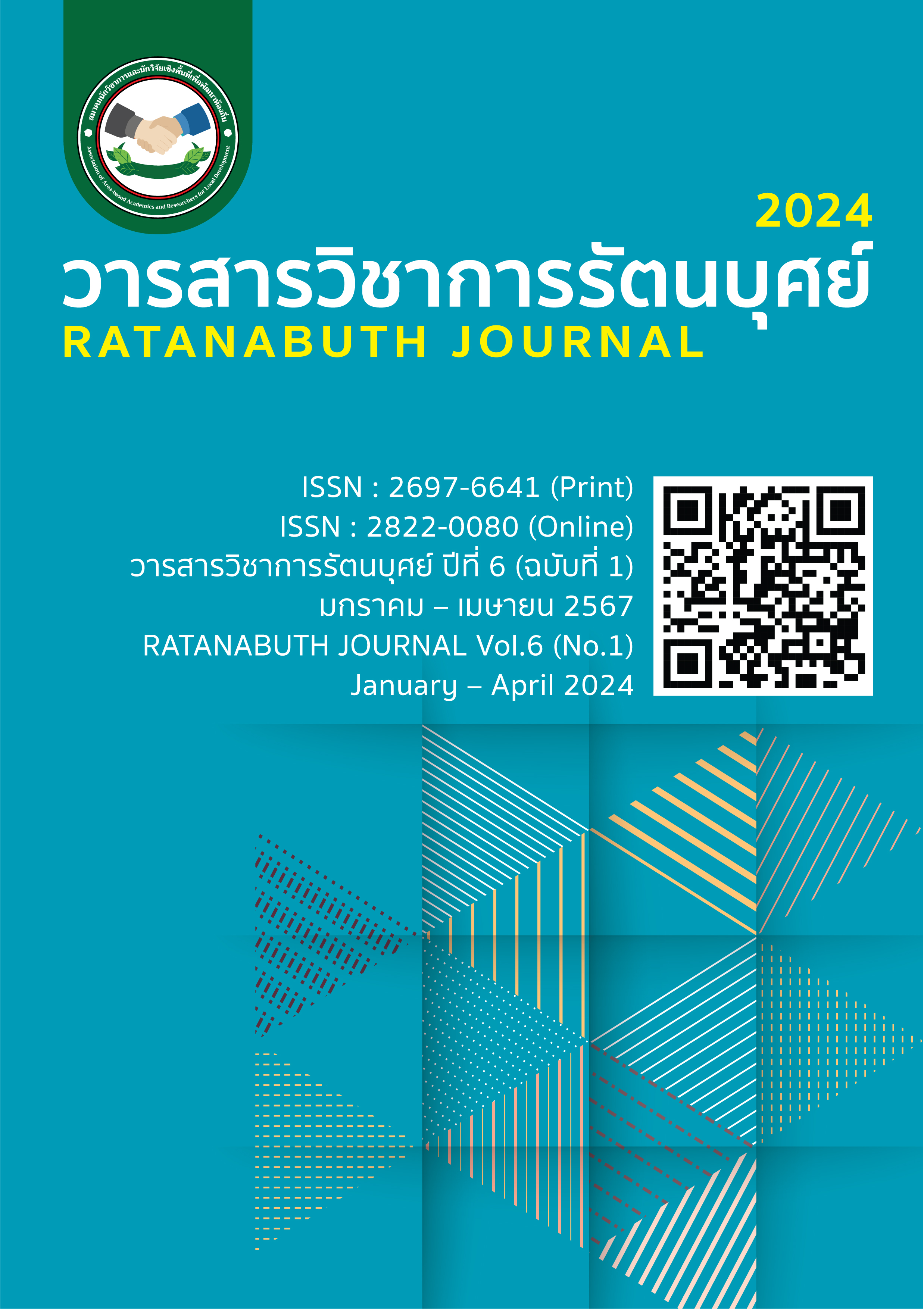Learning Society Management Strategy for Seniors in The Digital Age Learning Society Management Strategy for Seniors in The Digital Age
Main Article Content
Abstract
In the modern world, there is rapid development like the rotation of the earth that never stops. Developing learning to keep up with the world is one thing that is necessary today. Whether in technology, society, knowledge and abilities must be equal. No matter what age you are, children, young people, adults, and the elderly. But one thing that you must be aware of carefully is being deceived in various forms in terms of property, money, knowledge, and news that are important in life. It can be seen that technology is useful. But if we use it inappropriately Not knowing sufficiency in use Things that are beneficial can become harmful and have a negative impact on one's life. Therefore, strategies for managing a learning society for the elderly in the digital age Because nowadays with advanced technology The role of the internet and mobile phones As a result, everyone must adapt in order to keep up with the rapidly evolving era of technology. Learning digital skills is important for every human being, including the elderly. Therefore, it is important to know how to use and use technology appropriately and mindfully in order to be the best and most beneficial path. Therefore, the learning society management strategy For seniors in the digital age It drives measures to support the aging society and longevity of Thai people in Thailand into effective implementation. In the economic aspect, this includes accounting for innovative equipment to assist in the living of the elderly. Environmental aspect includes issuing regulations for local administrative organizations. Carry out a mission of technology and innovation to improve the quality of life of the elderly. In health, it includes promoting technology and innovation systems that help take care of the elderly's health, and in society, it includes creating learning innovations to increase work skills and life skills.
Article Details

This work is licensed under a Creative Commons Attribution-NonCommercial-NoDerivatives 4.0 International License.
References
กนตพล บรรทัดทอง. (2557). พฤติกรรมการใช้เครือข่ายสังคมออนไลน์และความพึงพอใจของกลุ่มคนผู้สูงอายุในเขตกรุงเทพมหานคร (Master’s thesis). สืบค้นเมื่อ 1 มีนาคม 2567 จาก http://dspace.bu.ac.th/handle/123456789/1298
จารุวรรณ ศรีภักดี. (2567). การขับเคลื่อนมาตรการรองรับสังคมสูงวัยคนไทยอายุยืนของประเทศไทยไปสู่การปฏิบัติอย่างมีคุณภาพ. สืบค้นเมื่อ 1 มีนาคม 2567 จาก https://www.dop.go.th/download/knowledge/th1658208320-1649_0.pdf
จิรเมธ ประเสริฐสุข.(2566). ฝ่ายนโยบายและยุทธศาสตร์ สำนักงานส่งเสริมเศรษฐกิจดิจิทัล. สืบค้นเมื่อ 1 มีนาคม 2567 จาก https://www.depa.or.th/th/article-view/digital-literacy
ณัฐดนัย เนียมทอง. (2561). ความเข้าใจดิจิทัลกับผู้สูงอายุ. สืบค้นเมื่อ 1 มีนาคม 2567 จาก https://www.scimath. org/article-technology/item/7943-2018-03-20-04-39-55
พิมพ์จรัส บุญเลิศ. (2560). การส่งเสริมการเห็นคุณค่าในตนเองในผู้สูงอายุที่มีภาวะซึมเศร้าผ่านเกม ออนไลน์ (Unpublished Master’s thesis). สงขลา:มหาวิทยาลัยสงขลานครินทร์.
สมาน ลอยฟ้า. (2557). พฤติกรรมการใช้อินเทอร์เน็ตของผู้ใหญ่ในชนบท. อินฟอร์เมชั่น, 21(2), 18-28.
อรรถพล สาธิตคณิตกุล. (2558). จิตวิทยาพัฒนาการชีวิตทุกช่วงวัย. (พิมพ์ครั้งที่ 7). กรุงเทพฯ :มหาวิทยาลัยธรรมศาสตร์.
Chakraborty, R., Vishik, C., & Raghav, H. (2013). Privacy preserving actions of older adults on social media: Exploring the behavior of opting out of information sharing. De-cision Support Systems, 55(4), 948–956
Boz, H., & Karatas, S. E. (2015). A review on internet use and quality of life of the elderly. Retrieved from https://www.researchgate.net/publication/283902258
Gonzalez, A., Paz Ramirez, M., & Viadel, V. (2012). Attitudes of the Elderly Toward Information and Communications Technologies. Educational Gerontology, 38(9), 585-594
Maliheh, S., Shima, S., & Robab, S. (2015). The internet use in elderly people the breadth of internet use among. Iranian elderly people. Retrieved from http://www.cigota.rs/en/medicinskiglasnik/vol-20-iss-56
Peral-Peral, B., Arenas-Gaitán, J., & Villarejo-Ramos, Á. (2015). From Digital Divide to Psychodigital Divide: Elders and Online Social Networks. Comunicar, 23(45), 57-64.
Ractham, P., & Techatassanasoontorn, A. (2014). Social Media Use and Senior Citizen’s Life Satisfaction. 25th Australasian Conference on Information Systems 8th - 10th Dec 2014, Auckland, New Zealand
Vosner, H.B., Bobek, S., Kokol, P., & Krecic, M.J. (2016). Attitudes of active older Internet users towards online social networking. Computer in Human Behavior, 55, 230- 241.


